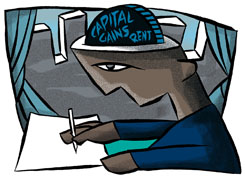Sanjib Jha |66 Answers |Ask -Follow
Insurance Expert - Answered on Nov 24, 2022

I have been operated for Wilson's disease for my liver. I got admitted in Nov 21 and got discharged in Dec 21. My insurance company paid all expenses up to Sum insured and the same got exhausted in Dec 21 and then I renewed the policy in Jan 22. As per my Policy I am eligible for claiming 60-days medical expenses post hospitalisation and submitting the bills but the TPA is repudiated it with remarks that not eligible as the treatment done in 2021 and bills for 2022 are not admissible though the insurance company is same.
Please help to know how do I tackle it and is there any alternate possibility.
However, if your sum insured was not completely exhausted, you would have got the claim for post hospitalisation even if the bills were dated in Jan 2022, i.e. within 60 days of discharge.
You may like to see similar questions and answers below
Sanjib Jha |66 Answers |Ask -Follow
Insurance Expert - Answered on Jun 21, 2022
Sanjib Jha |66 Answers |Ask -Follow
Insurance Expert - Answered on Sep 08, 2022
Sanjib Jha |66 Answers |Ask -Follow
Insurance Expert - Answered on Dec 22, 2022
Sanjib Jha |66 Answers |Ask -Follow
Insurance Expert - Answered on May 10, 2023
Ramalingam Kalirajan |8597 Answers |Ask -Follow
Mutual Funds, Financial Planning Expert - Answered on Apr 05, 2024
Dr Nagarajan J S K |497 Answers |Ask -Follow
NEET, Medical, Pharmacy Careers - Answered on May 29, 2025
Dr Nagarajan J S K |497 Answers |Ask -Follow
NEET, Medical, Pharmacy Careers - Answered on May 29, 2025
Nayagam P P |5479 Answers |Ask -Follow
Career Counsellor - Answered on May 29, 2025
T S Khurana |479 Answers |Ask -Follow
Tax Expert - Answered on May 29, 2025
Dr Nagarajan J S K |497 Answers |Ask -Follow
NEET, Medical, Pharmacy Careers - Answered on May 29, 2025
Dr Nagarajan J S K |497 Answers |Ask -Follow
NEET, Medical, Pharmacy Careers - Answered on May 29, 2025
T S Khurana |479 Answers |Ask -Follow
Tax Expert - Answered on May 29, 2025
Dr Nagarajan J S K |497 Answers |Ask -Follow
NEET, Medical, Pharmacy Careers - Answered on May 29, 2025
Ramalingam Kalirajan |8597 Answers |Ask -Follow
Mutual Funds, Financial Planning Expert - Answered on May 29, 2025
Ramalingam Kalirajan |8597 Answers |Ask -Follow
Mutual Funds, Financial Planning Expert - Answered on May 29, 2025
























